Electric Forklift: Everything Buyers Ask Before Investing (2025 Edition)

Kylian James
Marketing Engineer – Machinex Global.
Email : [email protected]
Table of Contents
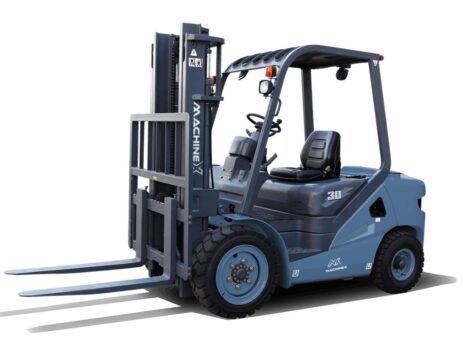
Introduction
In today’s rapidly evolving warehouse and logistics industry, electric forklifts are no longer just an alternative — they’re becoming the standard.
But for first-time buyers, procurement managers, and even seasoned operators, switching to electric comes with questions.
At Machinex, we’ve spoken to logistics heads in Dubai, fleet operators in Chennai, and even procurement teams from Africa.
Across the board, the questions are surprisingly similar.
So, we’ve compiled this ultimate FAQ blog — written by real industry experts
Let’s get into it. 👇
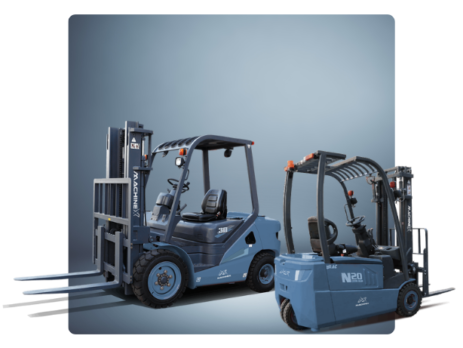
❓1. Are Electric Forklifts Worth It in 2025?
Answer:
Yes — now more than ever. Electric forklifts deliver lower operating costs, zero emissions, and quieter operation, making them ideal for both indoor and outdoor environments.
With today’s Li-ion battery tech (like those used in Machinex forklifts), you also get faster charging, longer battery life, and zero maintenance hassles.
Over a 5-year span, they often outperform diesel in total cost of ownership (TCO).
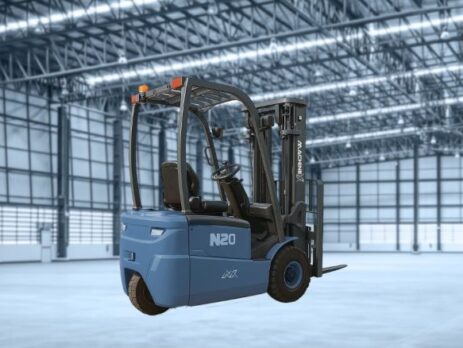
❓2. What Is the Disadvantage of an Electric Forklift?
Answer:
The only real disadvantage used to be limited run time and slow charging, but that’s mostly outdated.
With modern Li-ion forklifts, you can charge up to 80% in under 2 hours. However, initial investment can be slightly higher than diesel — but this is often offset by lower fuel, maintenance, and service costs.
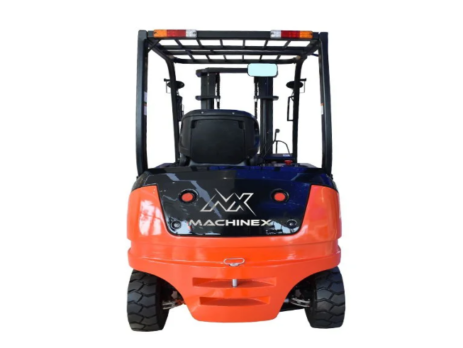
❓3. Do Electric Forklifts Use Oil?
Answer:
Not in the way diesel or gas forklifts do.
Electric forklifts don’t need engine oil, transmission fluid, or fuel additives.
They do use hydraulic oil for lift and tilt functions, but the maintenance is minimal and typically handled in routine inspections.
❓4. How Fast Do Electric Forklifts Go?
Answer:
Modern electric forklifts, like the Machinex MX-E series, can reach speeds of up to 16 km/h unloaded. That’s more than sufficient for most warehouse, yard, or dock operations — and they accelerate smoother and quieter than diesel.
Answer:
For indoor use and regulated spaces like warehouses, yes — electric forklifts are superior.
They produce no emissions, create less noise, and require less maintenance.
LPG forklifts are still useful for multi-shift outdoor operations where fast refueling is critical, but electric wins on overall efficiency and cost in most environments.
❓6. Do Electric Forklifts Have Brakes and Clutches?
Answer:
Yes, electric forklifts have braking systems, but they often use regenerative braking — which means they recover energy while slowing down. Most models, including ours, don’t need a clutch, because of automatic transmission systems built into the controller.
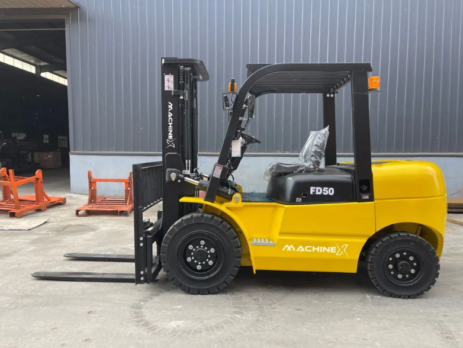
❓7. Can Electric Forklifts Be Used Outdoors?
Absolutely — as long as the model is rated for it. The Machinex MX-E series features high ground clearance, sealed motors, and weather-protected components, making them great for outdoor loading bays, construction zones, or freight yards.
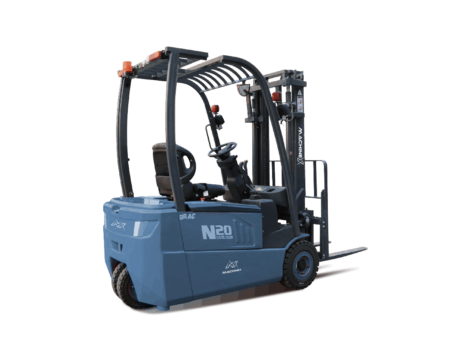
❓8. Are Electric Forklifts Expensive?
Answer:
Not anymore. While upfront cost may be 10–15% higher than LPG or diesel models, the total cost of ownership (TCO) over 3–5 years is significantly lower.
You save on fuel, filters, oil changes, and even operator fatigue. At Machinex, we designed our electric range to be cost-effective from Day 1 — starting at under $17,000 for 3-ton models.
❓9. Which Battery Is Used in Electric Forklifts — AC or DC?
Answer:
The motor may be AC or DC, but modern electric forklifts like ours use AC motors with Li-ion battery systems.
This combo provides longer lifespan, lower heating, and better torque control — especially under load.
❓10. What Is the Weight Limit of an Electric Forklift?
Answer:
Electric forklifts can lift anywhere from 1.5 to 5 tons, depending on the model.
Our popular MX-E 3.5T model handles 3,500 kg at a 500 mm load center, ideal for pallets, containers, and industrial crates.
❓11. Why Choose Machinex Electric Forklifts?
Answer:
Because we’ve combined engineering-grade performance with real-world pricing.
Our electric forklifts are:
Co-developed with Japanese & German engineering partners
Designed for zero downtime
Backed by global after-sales support
Built with Middle East & Asia-Pacific logistics in mind
🏁 Final Word:
If you’re serious about switching to electric forklifts, these FAQs should cover your biggest doubts — and the answers come not just from Google, but from the warehouse floor.
